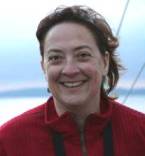As originally posted on Grist.org
 In the current issue of Science twenty-one leading ocean scientists declared a truce—it’s as if Wile E. Coyote and Roadrunner agreed to stop the chase for a day. The paper was authored by many of the biggest names on all sides of the debate on ending overfishing—Boris Worm, Ray Hilborn, Andy Rosenberg and Chris Costello. So what are the terms?
In the current issue of Science twenty-one leading ocean scientists declared a truce—it’s as if Wile E. Coyote and Roadrunner agreed to stop the chase for a day. The paper was authored by many of the biggest names on all sides of the debate on ending overfishing—Boris Worm, Ray Hilborn, Andy Rosenberg and Chris Costello. So what are the terms?
First, they agree on what I will call a “Goldilocks” catch level (You know—not too hot, not too cold, but just right.) If we fish too much, then fish get smaller, catch levels eventually go down and lots of species end up on the road to ruin. If we fish too little, we can keep the fish in the oceans healthy, but fish for people goes way down. Fishing just right would mean aiming to catch about 20 percent of ocean fish every year. At that level, fish would be bigger, the long term catch would be stable at a high level, and the news for ecosystems—whales, dolphins, and turtles—would be good too; at least 90% of species would be at healthy levels-which is quite a bit better than we are doing now.
The second part of the paper is where the scientists waded into the hot debate on what management works to get to the Goldilocks level. The scientists looked at the big ocean places that are making progress and asked managers what worked. The first thing they found was that most places use a mix of approaches for the mix of ecosystem types-so there is not a panacea. Pretty much everyone will agree to that.
What comes out on top, though? It comes down to effectively implementing caps on catch levels using two key tools: reducing the Total Allowable Catch and putting in place catch shares. (You can look at their table where a solution was identified in at least five of the ten fisheries, and was usually ranked an “essential” part of the solution.) This is strong stuff!
There are lots of questions yet to answer—like why is it that a catch share program always had a reduced allowable catch level? Is the theory right that catch shares make it easier to set the catch level properly? And what makes it possible for enough stakeholders to agree to close off areas of the ocean? What are the keys to community co-management, which seems to work in small-scale fisheries? I expect that the scientists will go back to their corners and duke out those questions. I can’t wait.










 Effective and efficient fisheries management is often limited by available information and the high cost of marine data collection and analysis. Regardless of information gaps, management decisions still need to be made. Common challenges exist because too little is known about fish populations and their dynamics, the spatial distribution of fishing harvest, or monitoring and enforcement of regulatory standards.
Effective and efficient fisheries management is often limited by available information and the high cost of marine data collection and analysis. Regardless of information gaps, management decisions still need to be made. Common challenges exist because too little is known about fish populations and their dynamics, the spatial distribution of fishing harvest, or monitoring and enforcement of regulatory standards.